



President: M Martin MBE
Chairman of the Trust: C Huntington-Whiteley
Chairman of Finance Committee (commencing 2021):
A Southall
Chairman of the Management Board (ending 2020):
A Fox-Edwards
Trustees and Directors:
P Arnott
Prof D Butler
The Lord Clinton
W Darwall
Sir S Day
A Gray
G Hart
Sir D Hoare Bt
J Ingham Clark - retired 27 November 2020
Dr K Lancaster
H B Llewellyn - retired 27 November 2020
D Morris - appointed 27 November 2020
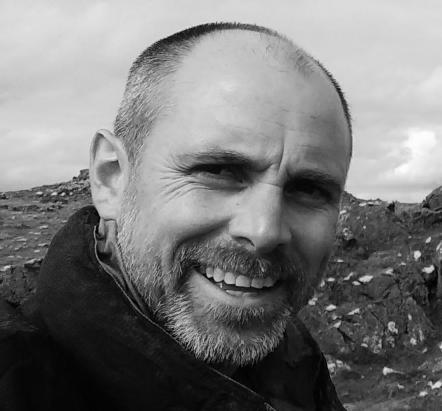
R Simpson
A Southall
I Thompson - appointed 27 November 2020
Dr A Torrance
R Whitson - appointed 27 November 2020
W F Wyldbore-Smith
Chief Executive: Dr Laurence Couldrick
Company Secretary: Kelly Sivorn
Independent Auditors: PKF Francis Clark
Sigma House, Oak View Close, Edginswell Lane, Torquay TQ2 7FF
Registered Company no: 06545646
Registered Charity No: 1135007
Registered office:
Rain-Charm House, Kyl Cober Parc, Stoke Climsland, Callington, Cornwall. PL17 8PH.
CONTENTS
Message
MESSAGE
2020 was meant to be the year when many of the last decade’s environmental targets such as the Government’s Biodiversity 2020 strategy were met. However, 2020 will forever be burnt into our minds by one word: Covid.
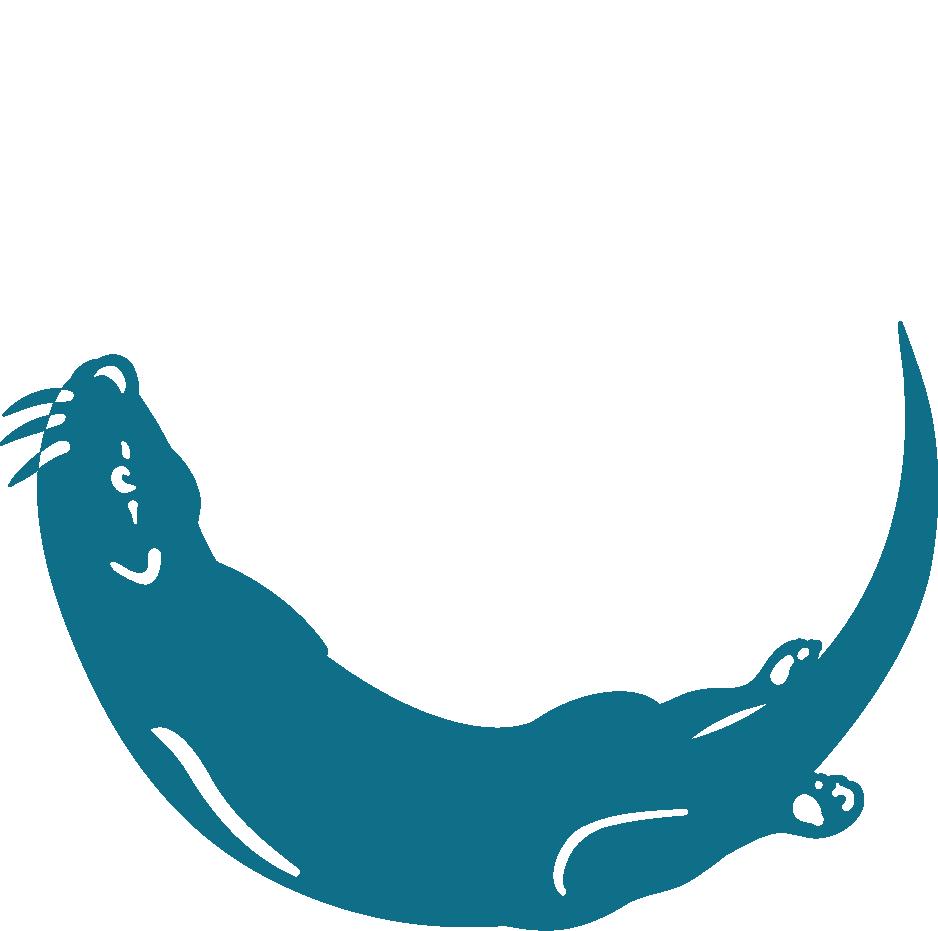
While the chronic pressures of biodiversity decline and the climate change emergency never left us, the acute pressure from a global pandemic rocked the world. As a Trust, we were impacted, but nowhere near as much as other organisations. Our team quickly settled into new routines, with our fantastic funders and partners enabling us to adapt our projects and work. Despite all the challenges in 2020, we were still able to deliver significant positive impacts for our rivers including planting 58,000 trees, running 212 volunteer events, and supporting 404 farmers.
Our Citizen Science Investigations proved invaluable over lockdowns, not only in gathering vital data on river health but through added purpose to people’s allowed daily walks. As we move forward and attention falls back to chronic biodiversity pressures, we must, as a team and as communities, learn from the pandemic in terms of how much can be achieved as a society when we are properly motivated and how vital community and partnerships are for our future survival.
Dr. Laurence Couldrick
3 CEO’s
6-17 Our Projects 19 Our Finances A
FROM OUR CEO
4-5 Our Impact 18 Our Communication 2 3
WHAT WE DO
We are committed to the resilience and sustainability of the Westcountry’s freshwater resources and habitats.
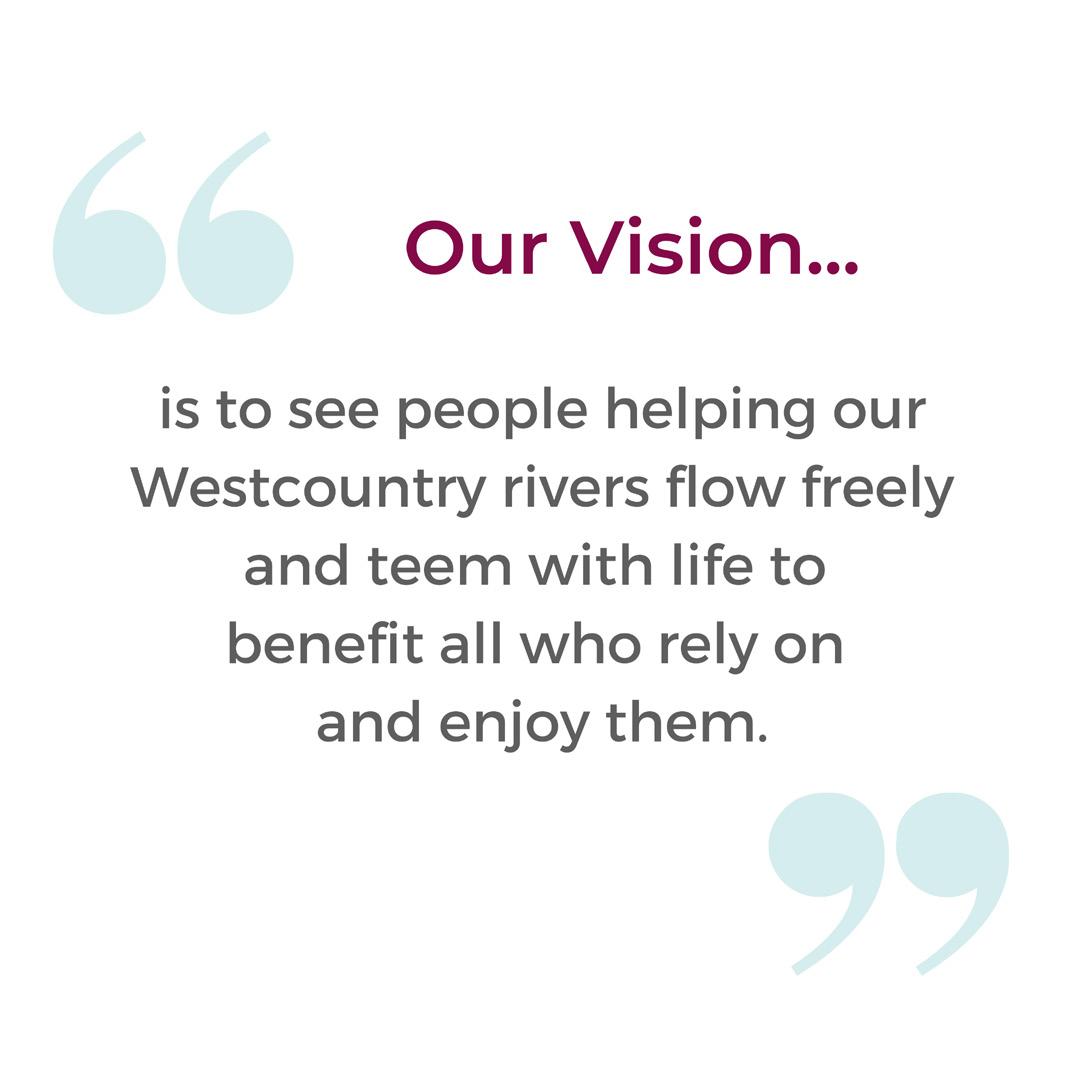
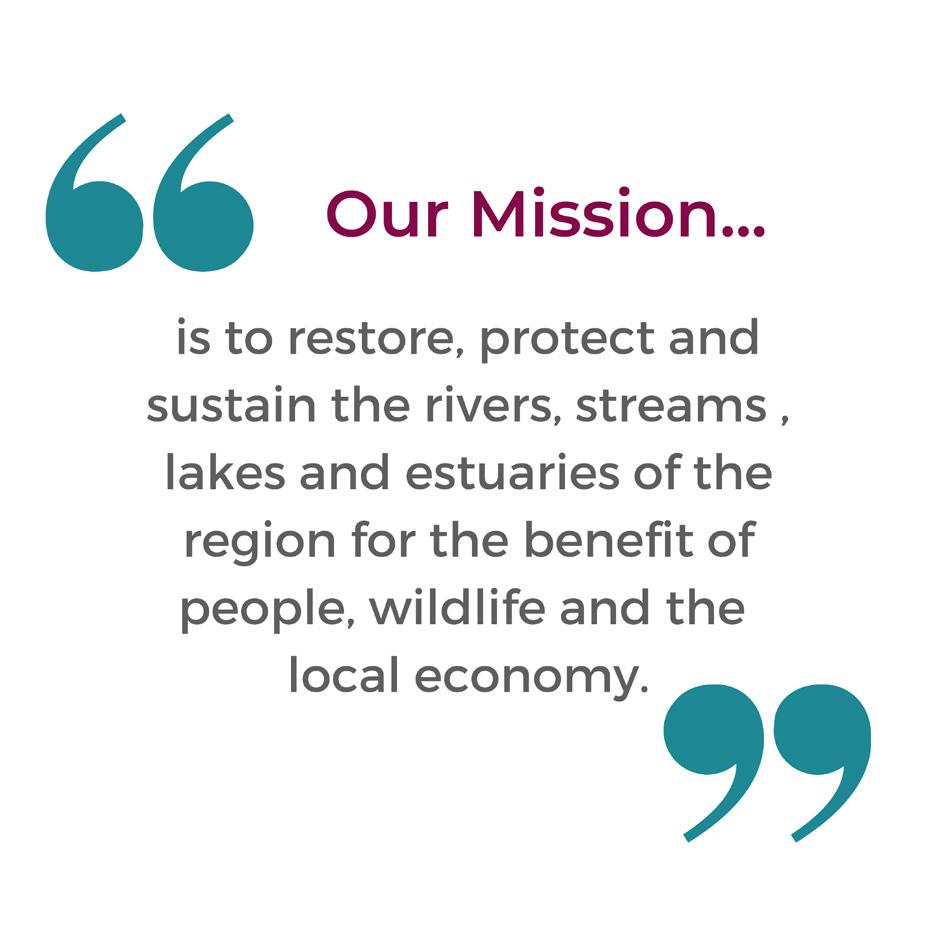
Our work cares for our rivers to support us in business and for pleasure, while ensuring river wildlife can thrive and water quality is protected.
Whether we are working with our volunteers, engaging with farming and fishing communities, collating vital scientific data or monitoring the Westcountry’s waterways, it is all to keep them healthy, for now, and for the future.
OUR PRIORITIES
To benefit rivers, nature and people, we are...
Growing our Influence – to ensure people know about our charity and service work.
Growing our Robustness – to ensure we have strong processes to manage growth in the Trust.
Growing our Delivery – to ensure we have the ability to tap into the myriad of opportunities that are ahead of us.
Growing our Resilience – to ensure we are financially sustainable.
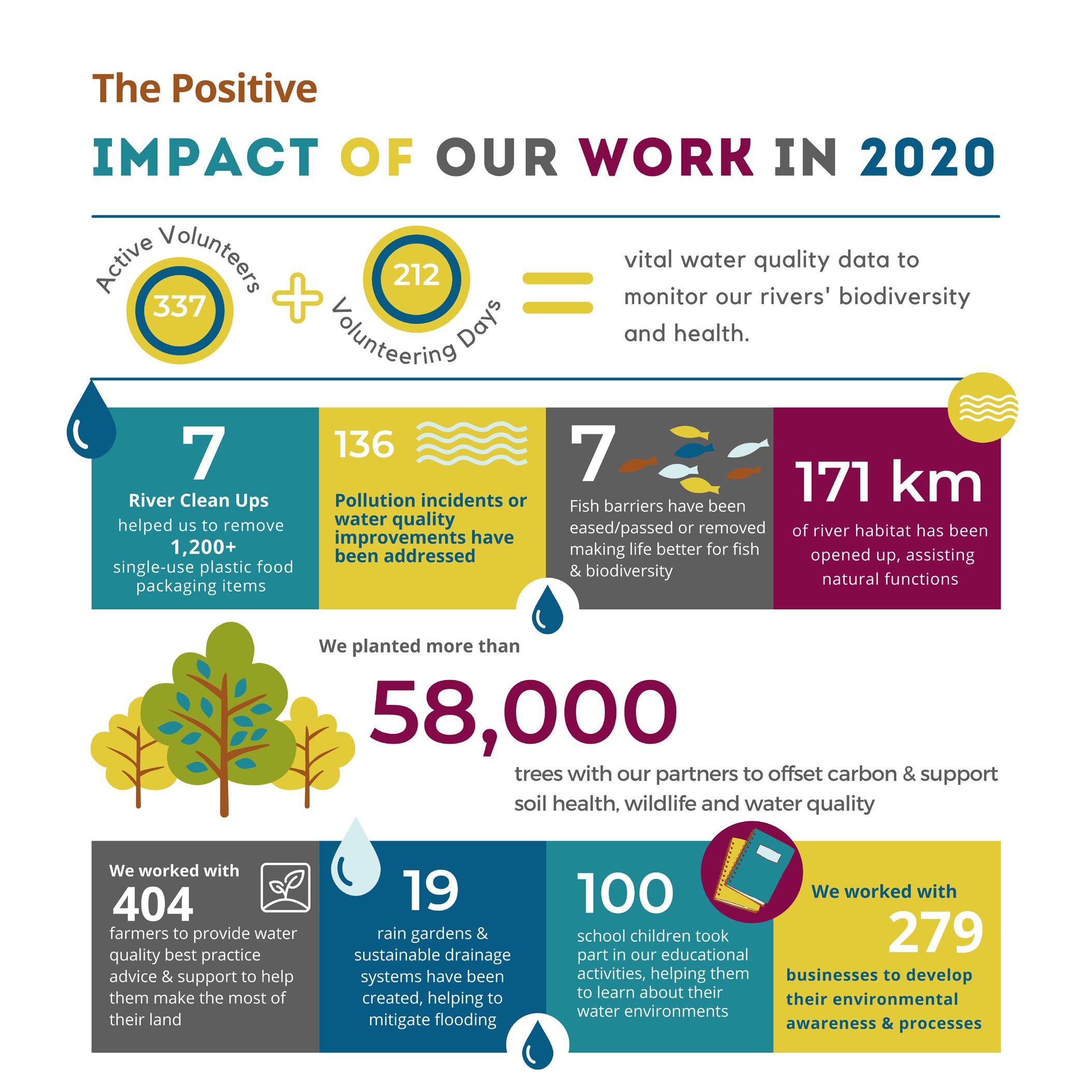
4 5
UPSTREAM THINKING
wrt.org.uk/project/upstream thinking-3/
Following the success of the two previous Upstream Thinking (UST) projects, we are continuing our work with South West Water (SWW) to deliver the third phase, running from 2020 to 2025.

Our previous project partnership work reduced and mitigated some of the pressures impacting on water quality at source.
For this next stage, we are focusing on positive water quality and biodiversity outcomes via investment in the Natural Capital stock of the catchments alongside project partners SWW, Cornwall and
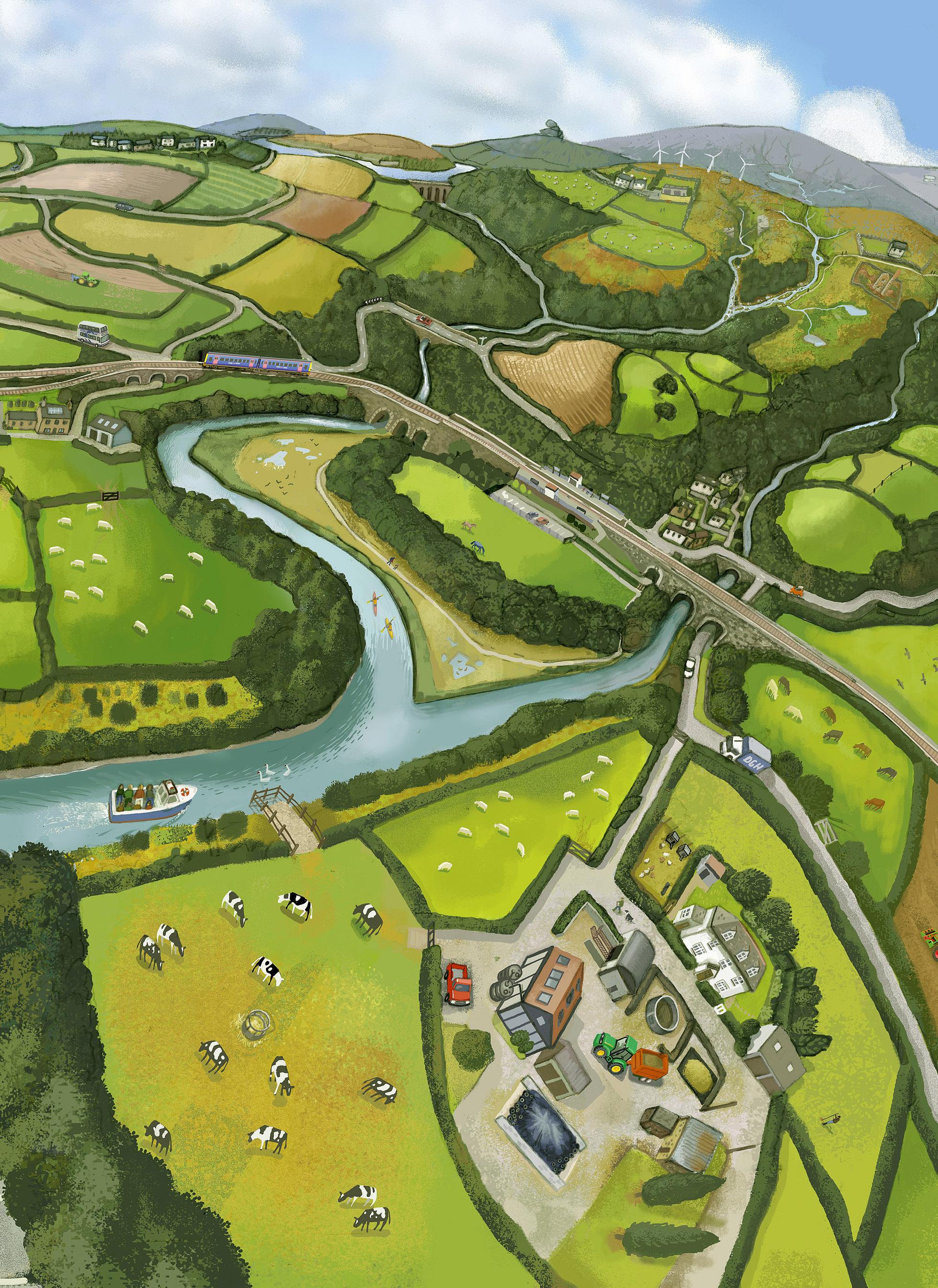
Devon Wildlife Trusts, FWAG South West and Exmoor Mires.
Despite the challenges of 2020, our Upstream Thinking team created land management opportunities for farmers and landowners.
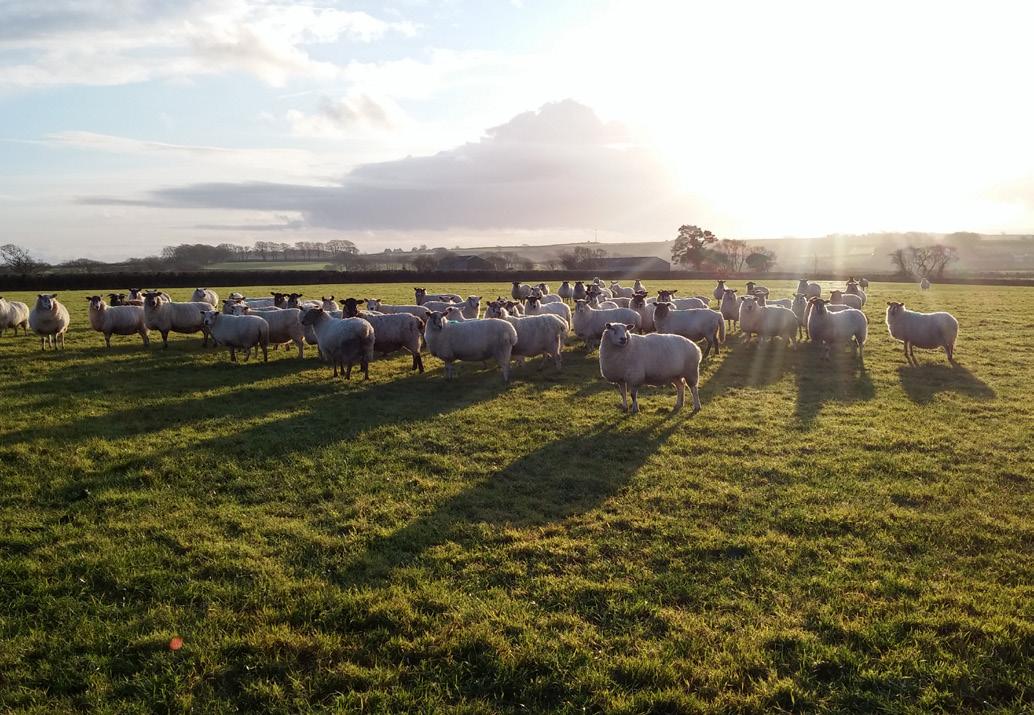
One example is a grant for a large rainwater harvesting system. This will capture enough clean roof water to provide the farm with all they need to clean their poultry houses all year for free. Another related to the benefits of greater soil protection and reduced cultivation, meaning less risk of soil or nutrient losses and better carbon sequestration through using different techniques i.e., direct drilling and/or cover crops.
A farmer trialing a drill purchased as part of the project said: “The Freeflow drill – I love it, it’s great. Everything in at the right depth, into moisture and well covered.”
These are just two ways our work helped people on the ground in 2020, making their daily working lives better and bringing benefits to the overall health of our rivers and surrounding habitats.
3
OUR
6 7
CHANNEL PAYMENTS FOR ECOSYSTEM SERVICES


wrt . org . uk / project / cpes /
The EU-funded Channel Payments for Ecosystem Services (CPES) has been instrumental across a variety of opportunities in 2020. This has included but was not limited to our work relating to tree planting and soil health.
We held a reverse auction with the Environment Agency (EA) and the Sylva Foundation using the EA’s auction platform, NatureBid.

Bidding proposals peaked at 1.5 times the value of the available fund from farmers interested in implementing positive changes on their land such as watercourse fencing, field and river buffer strips or soil management.

In addition, we were supported by businesses who are signatories to the Courtauld 2025 commitment for collective action on water through our Tamar Water Stewardship Business Board.

South West Water provided land for 2,000 trees to be planted near Roadford. Their staff, along with Premier Foods, South West Lakes Trust and community volunteers joined forces with us to plant them in early March.
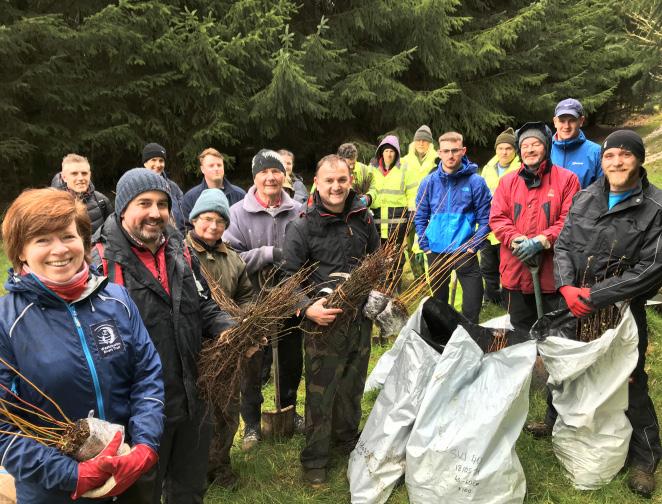
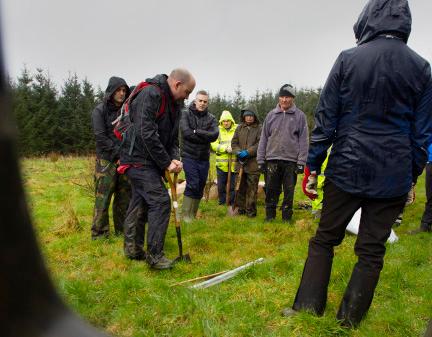
DEVON AND CORNWALL SOIL ALLIANCE
wrt . org . uk / project / dcsa /
Since the start of the Devon & Cornwall Soils Alliance (DCSA) in June 2019, we have made great strides in building capacity and capability in soils advice across Devon and Cornwall.
In early 2020, we held the DCSA #ActOnSoils Conference. Speakers included farm advisors, agricultural consultants and a PhD student, with topics covered including a field rainfall simulator experiment on Culm grassland soils and if conservation and regenerative agriculture can benefit river catchments in Devon and Cornwall.
Three soil workshops took place along with a DCSA mentors’ session - the project now has 10+ mentors to help train others.
In May, we conducted seven feasibility studies to demonstrate a protocol for the assessment of soil health in any of the soil types found across the two counties.
Our Soils Matter film was also released in December to share the importance of soils and how they are instrumental in mitigating climate change effects. Find out about how you can get involved and our future events via our website.

8 9
TAMAR WATER STEWARDSHIP BUSINESS BOARD
PREVENTING PLASTIC POLLUTION
We planted an amazing amount of trees in 2020 - 58,000 in total.
All of this is helping to create new habitats, improve water quality, lock up carbon, and increase biodiversity, and results in improved land and water management for greater resilience and sustainability.
A large element of this has been supported by local businesses, levering investment for the catchment’s natural resources.
As part of the EU-funded Channel Payments for Ecosystem Services (CPES)



Interreg project, we helped to develop the Tamar Water Stewardship Business Board.

As noted under the CPES section, members are also signatories to the Courtauld 2025 commitment for collective action on water.
We continue to work with its members to provide them with advice on how their processes and supply chains can protect water quality and natural resources.
Along with Premier Foods joining us to plant some of the trees they had provided, our TWSBB members also shared blogs about how their firms are embedding sustainability in their operations.
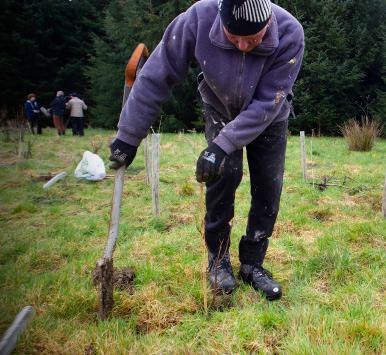


These covered topics such as the development of understanding of sustainability and water resource use in relation to beef and lamb production to commitments to reducing carbon emissions.

Our aim is to grow the TWSBB and expand the business opportunity to other catchments in our region.
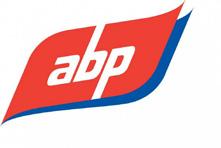
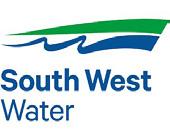
Visit our website to find out more about how your business can take part in the TWSBB or future opportunities.
Our Preventing Plastic Pollution (PPP) project is identifying and targeting plastic hotspots from source to sea in the Tamar catchment.
Part of an 18-partner cross Channel EU-funded scheme, we are working with our local partners to embed behaviour change in communities and businesses, while implementing effective solutions and alternatives to plastic use. Undeterred by the new ways of working in 2020, our PPP team began mapping the potential sources where micro and macro plastics could get into the River Tamar. These included sewage treatment outfalls, roads, and equestrian centres.
Initial findings showed litter was prevalent in rural and urban laybys.
It has led to ongoing research by our project partner Plymouth University to determine a scientific correlation between higher litter levels and laybys.
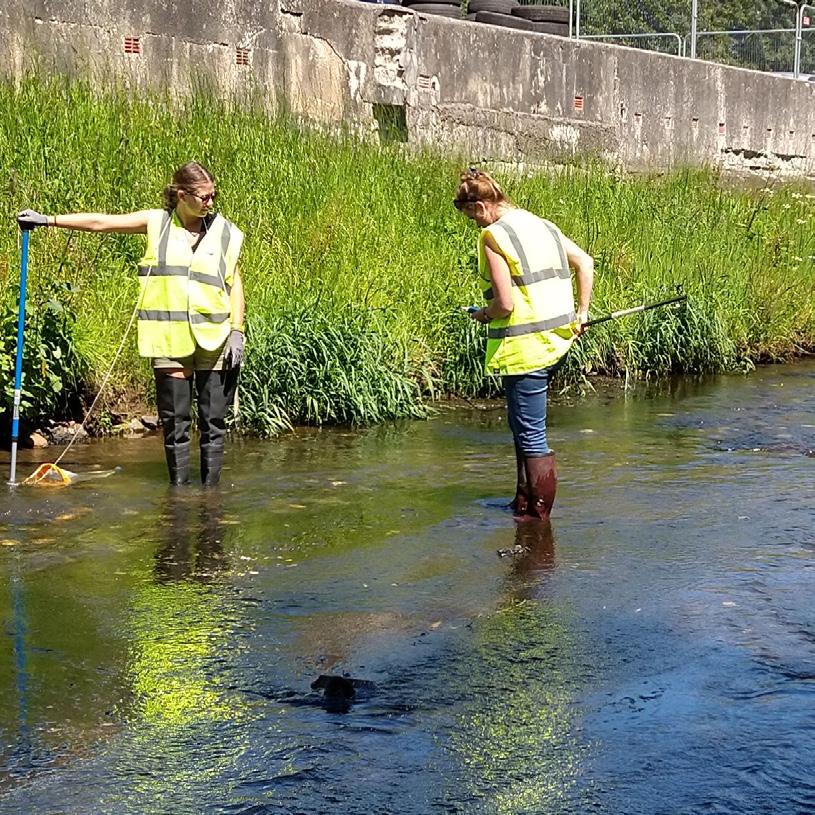
Our team collected 1,200+ single-use plastic food packaging items and 80 cigarette butts in only seven litter picks. Data such as this is shared with all partners and will inform how work progresses in the future.
Part of our plans includes community cleans, interventions and prevention work, and the opportunity for small and medium-sized businesses to access a free waste audit.
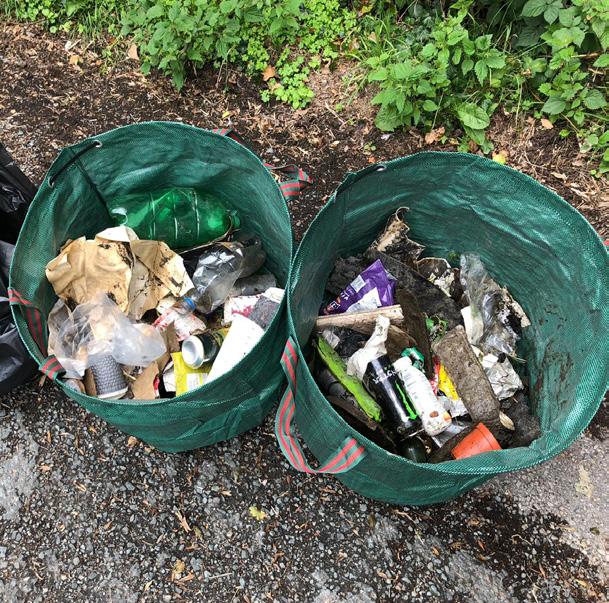
wrt . org . uk / project / preventing plastic pollution ppp /
wrt.org.uk/tamar water stewardship business board/
10 11
In 2020, as more and more people reconnected to their local areas and bolstered, rekindled or found a new love for nature, our Westcountry Citizen Science Investigations (CSI) volunteering project grew.

Lockdowns meant people staying close to home and looking for more ways to get to know their neighbourhood. For us, it led to new volunteers helping us to monitor the region’s rivers, streams, wetlands and estuaries.
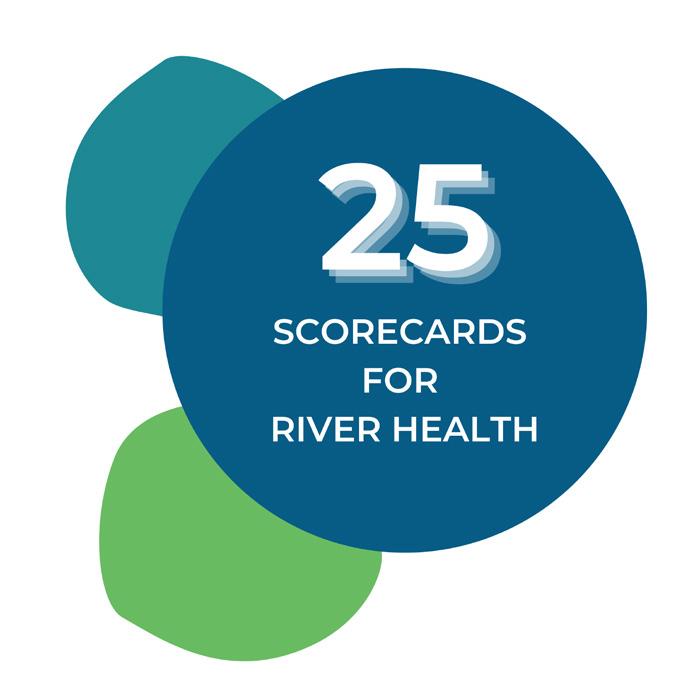
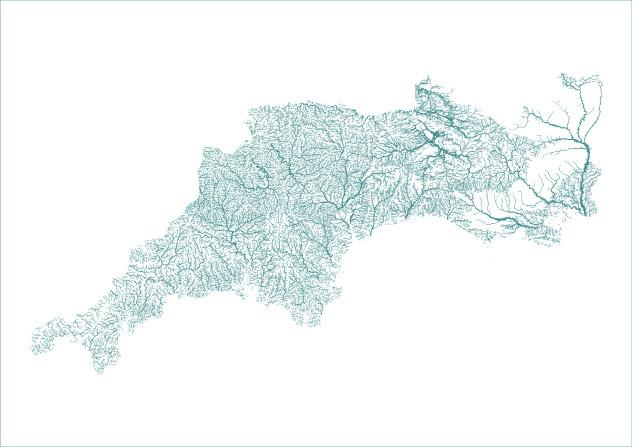
Interest was so keen, we introduced monthly Westcountry CSI webinars online to support our volunteers at a time when we were unable to meet in person. These proved very popular, enabling established and new volunteers to learn more and build connections.

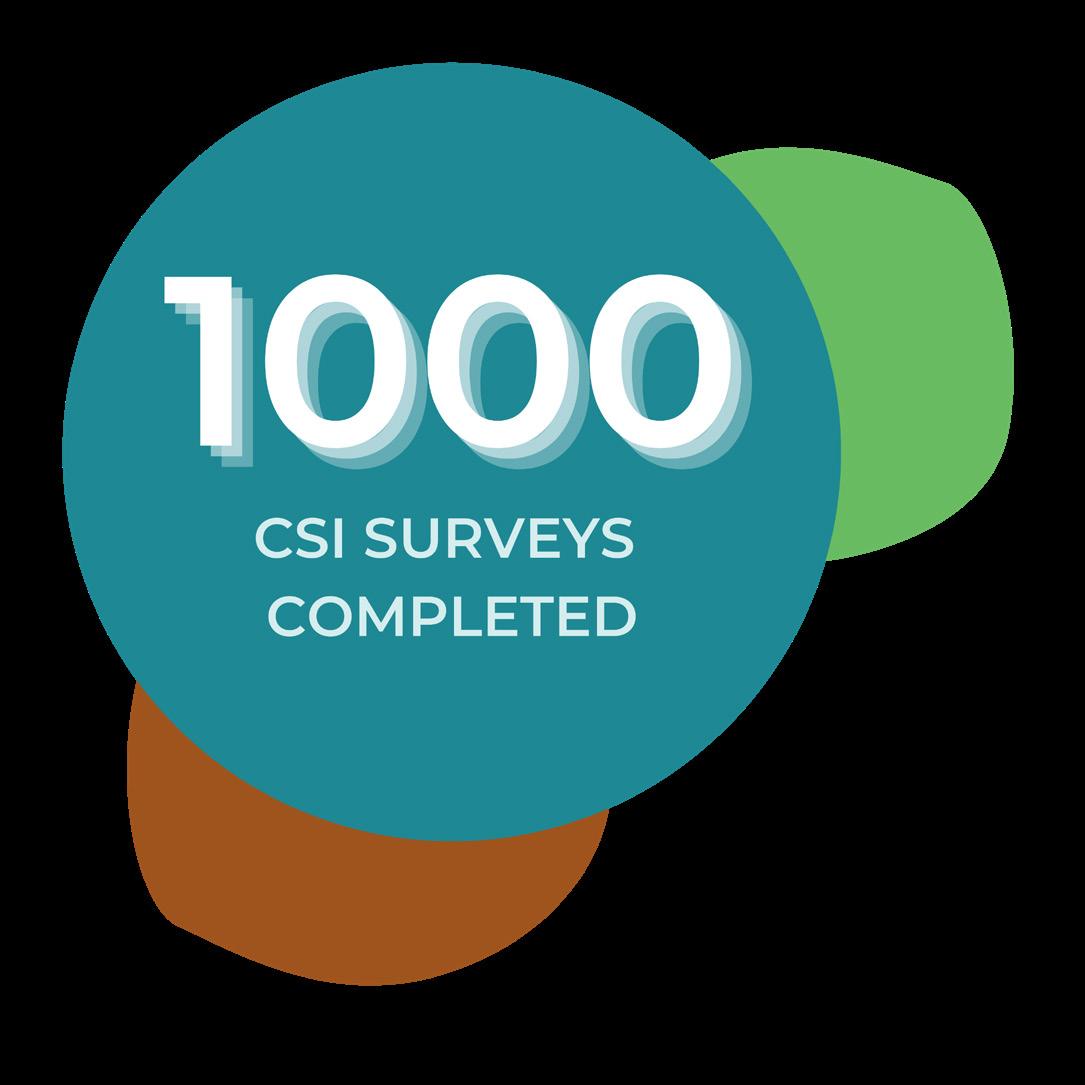
Watch the film our Westcountry CSI volunteer Anna made about her experience of supporting our charity.
Hear how taking part has helped Anna personally, expanded her understanding of nature, bolstered her passion for rivers, and how it is important to her to give something back.
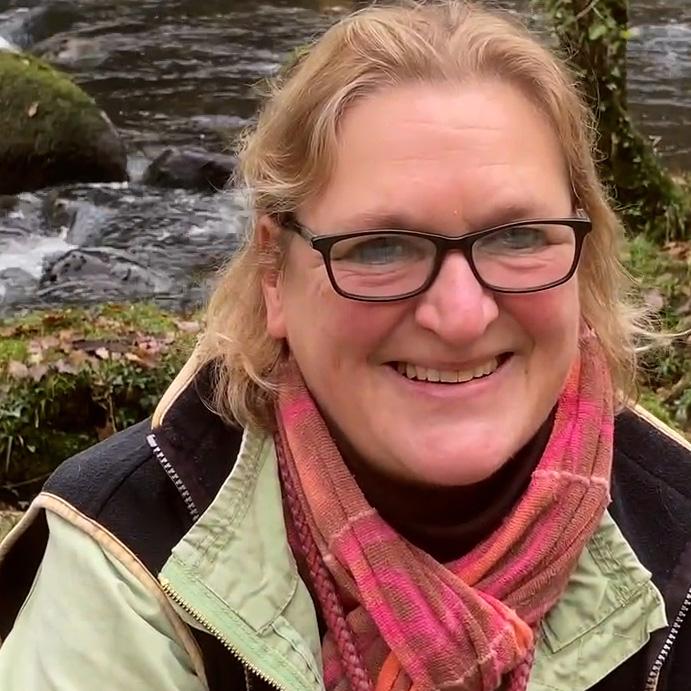
She talks about the joy of working with others too by recruiting, training and supporting other volunteers on the River Dart.
Visit our YouTube channel at youtu.be/1ZKRr8NLYuw
To help our enthusiastic volunteers keep in contact, we developed our Westcountry CSI Facebook group.
It provides an online opportunity to chat about the exciting things seen along our riverbanks, including a film shared by our volunteer Stefan of an otter pottering about the River Sid and a place for volunteers to seek advice.
wrt . org . uk / project / become a citizen scientist /
“We did our first CSI survey for Widey Woods stream in Plymouth today, great couple of hours and the kids loved it.”
New volunteers, Chris & family
12 13
PLYMOUTH RIVER KEEPERS wrt . org . uk / project / plymouth river keepers /
Working in north west Plymouth, our Plymouth River Keepers project focuses on keeping the streams in the area flourishing. It aims to connect people who live in Ernesettle, Tamerton Foliot, Southway, Whitleigh, Widewell, Honicknowle, Derriford West and Crownhill, and Manadon and Widey with their local waterways, and inspire action.
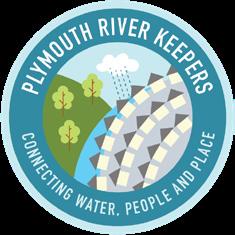
As Covid-19 impacted plans, the project team took the opportunity to reevaluate and create new ways for the community to participate.
During the lockdowns, this included an interactive survey to gather ideas from residents and people working locally, while The Bioregional Learning Centre, in
addition to initial project development support collated stories and memories from those who live nearby.
A virtual ‘river dip’ took place in September, bringing people together online to meet the team, our citizen science crew, and one of our river scientists. We also enjoyed an online festive get-together, with several people keen to get involved in 2021.

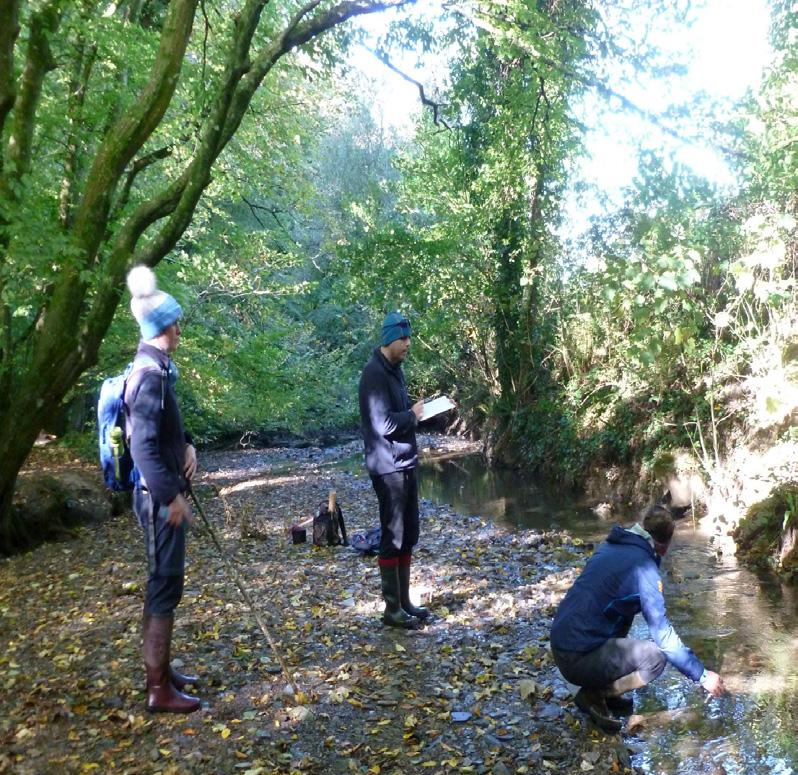
New plans to develop habitat management, including the removal of a fish barrier, were made, along with designated sites for fixed-point photography posts that will share biodiversity information relating to the area and provide a visual monitoring tool.
To help salmon and trout navigate the River Camel successfully, our River Ops & Fisheries teams, working under the ERDF-funded Water for Growth partnership, removed Keybridge Weir in Autumn 2020. They did so as part of the Camel Vision, which aims to re-naturalise the river, one of Cornwall’s most important Special Areas of Conservation.
The weir has been in situ for more than 100 years on the De Lank (a tributary of the River Camel) and its details have been recorded for posterity by our Archaeological consultant.

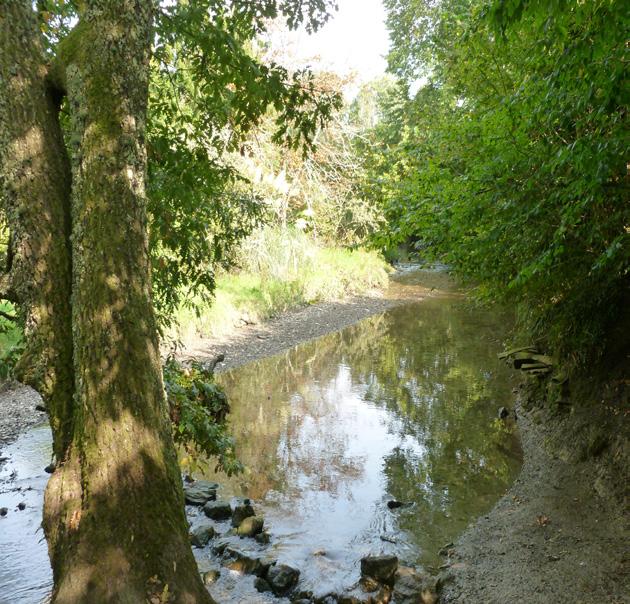
Our teams, aided by contractors, and supported by the Environment Agency and

WATER FOR GROWTH
wrt.org.uk/project/water-for-growth/
Natural England carefully removed the weir, with the results being instantaneous. Clean river gravels filled the space where once a barrier had stood.
This weir removal is a significant achievement and joins the removal of or improvement to 16 other structures on the rivers Camel and Fowey under the partnership in the past four years.
In addition to this, we are improving river habitat on both rivers and enabling anglers to fish using our Fish Pass app.
We are delighted to announce that we have another two years of funding to continue this good work.
14 15
RIVER OPERATIONS
The River Ops & Fisheries team rose to the challenges of 2020 to create positive outcomes for our region’s rivers. This included the delivery of more interventions to increase smolt numbers in Tamar catchment rivers via the Roadford Mitigation Programme and an Ash Dieback survey throughout the upper Exe catchment to understand the impact of the tree disease on the riparian corridor.
With construction-based work and support for at-risk flood communities permitted, they undertook a range of natural flood management work. Stringent safety measures and policies were introduced and by late summer, the team were involved in the modification and removal of three weirs as part of the Water for Growth project, while a few electrofishing surveys were conducted at key sites using a modified methodology to meet COVID-safe working practices.
With an increased drive for nature recovery projects which restore and protect the environment, a second Arboricultural Apprentice joined the team and a recruitment drive took place for a third to
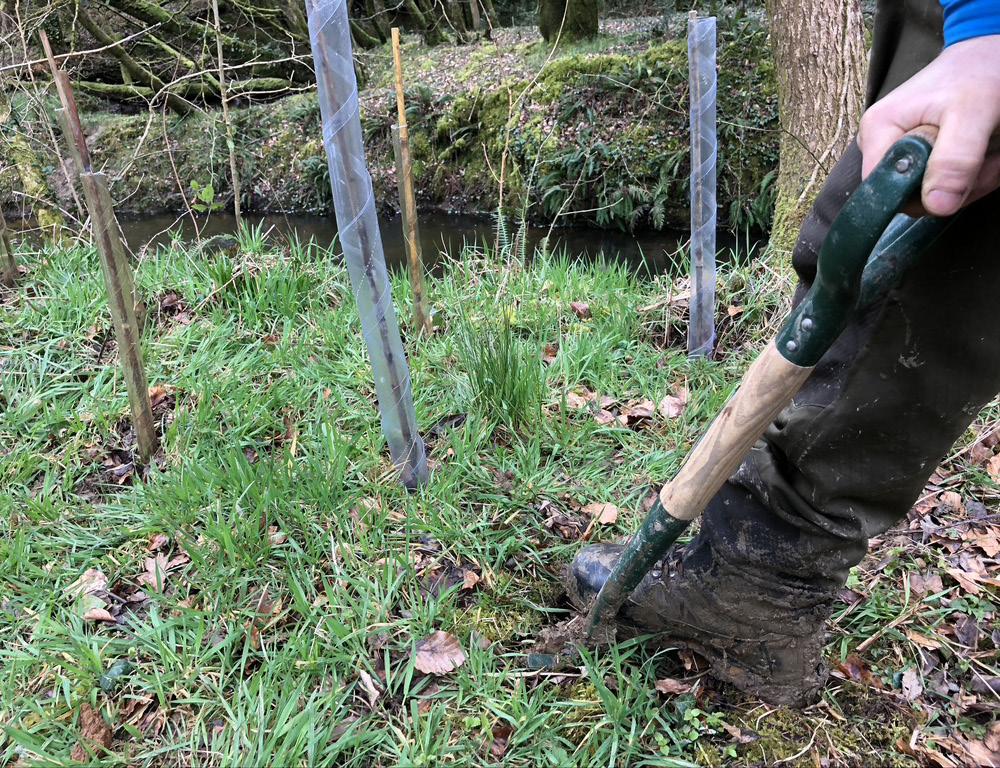
join the trust by the end of the year.
The year closed with exciting news as funding was awarded to the Devon and Cornwall Riparian Planting project. This will set the team on course to plant 17,000 trees by the end of 2021.
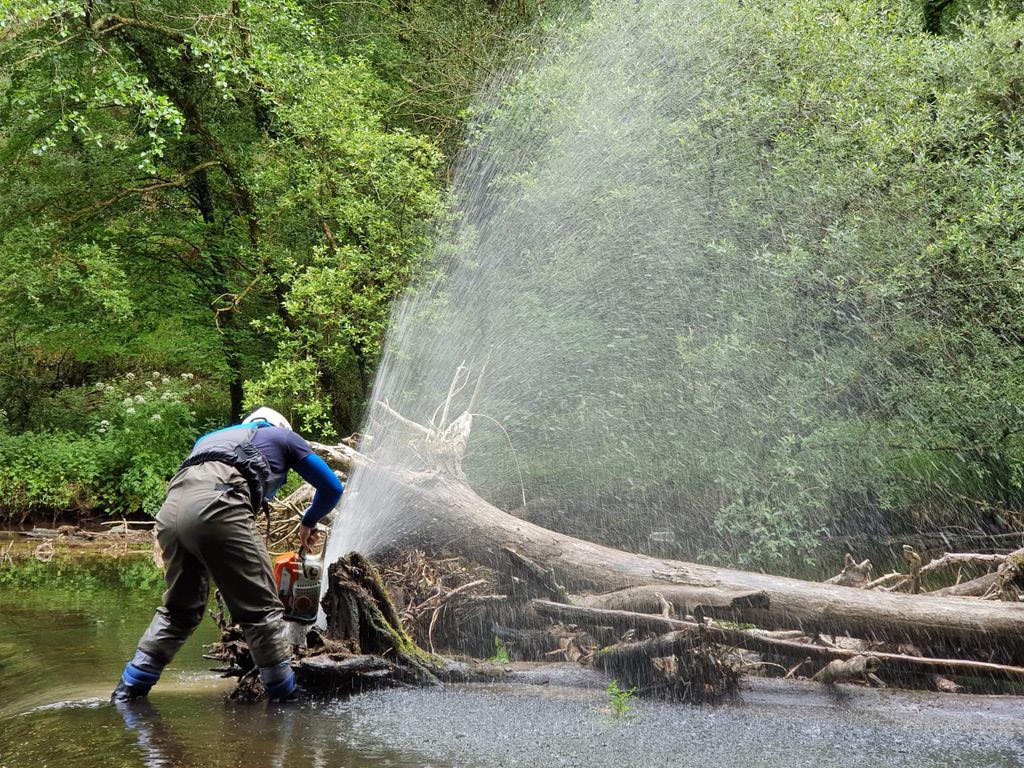
For our angling community, fishing was a wonderful way to escape the mental and physical constraints that we had to cope with during 2020.
Our Fish Pass App came into its own during lockdowns, becoming a popular way for anglers to safely access open Beats using a contactless app system. Our Westcountry Angling Passport (WAP) paper-based tokens for accessing fishing Beats remained available, but with the need to minimise possible Covid-19 transmission routes, we decided to only offer ‘in app’ Fish Pass tokens for 2020.
And, despite the challeng ing circumstances, our Fish Pass app was used 811 times to gain access to fishing, a 155% increase when compared to 2019 and by 749 users, an 83% increase when compared to 2019.

To support the uptake in angling, we introduced eight new Beats to Fish Pass in the Westcountry too. Throughout the pandemic, we asked all anglers to follow the current government guidelines on social distancing, including providing advice such as using snippers instead of biting through tippets and using hand sanitizers before and after opening and closing gates, and fishing.
And we were pleased to assist several anglers with finding solace and enjoyment along the wonderful Westcountry riverbanks. Here is what some of them said...
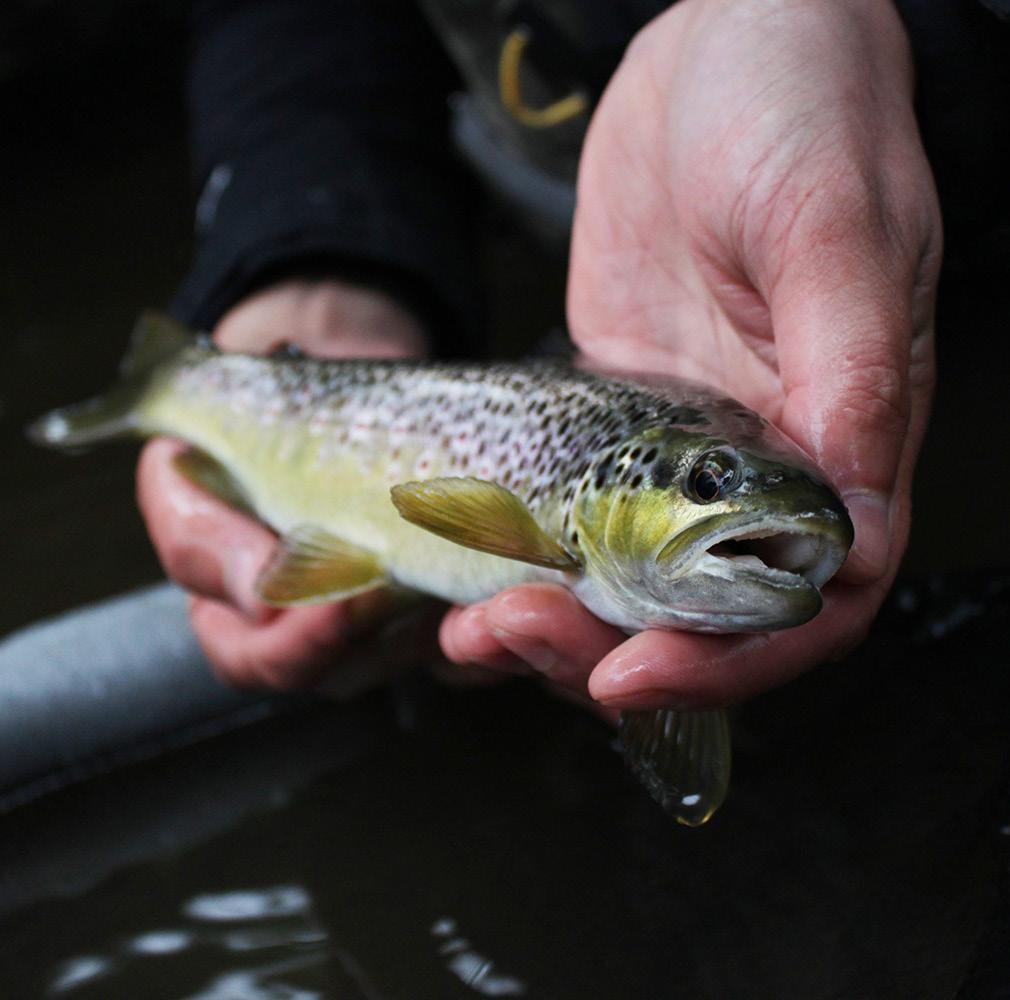
“First time river fishing. Had a great time, even though just one trout caught.”
Alan, Beat 9: Rothern Bridge
“Fantastic afternoon on a beautiful beat.”
Karen, Beat 5: Castle Hill
FISH PASS
wrt . org . uk / our work / activities / fisheries / westcountryangling . com 16 17
COMMUNICATING OUR WORK
.
To help keep people up to date with the ongoing changes in 2020, we regularly shared information regarding our working practices and created six newsletters to highlight the things we were doing. We also supported our national body The Rivers Trust, connected and collaborated with local groups such as the North Devon Biosphere, and partnered with external organisations on projects such as Bude Climate Partnership.
As plans changed and projects adapted to new ways of working, our online communications became even more intrinsic in sharing our work and love of Westcountry rivers with varied audiences. We were joined in late 2020 by our new volunteer vlogger, biologist and conservationist, Emily (pictured). Find out more by signing up to our newsletter via our website.
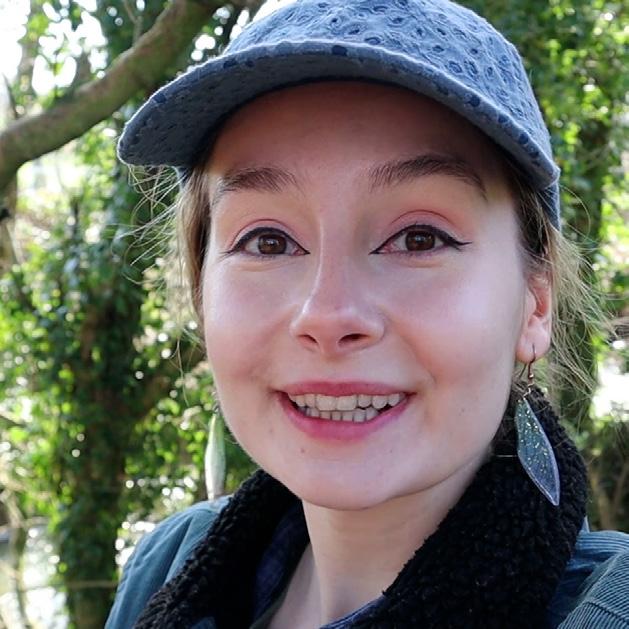
Income
Balancing Land Use £1,009,110
Protecting Rivers £670,573
OUR FINANCES
ead o ur f ull f inancial s tatements at charitycommission . gov . uk
Engaging People £417,907 Trading Activities £78,133
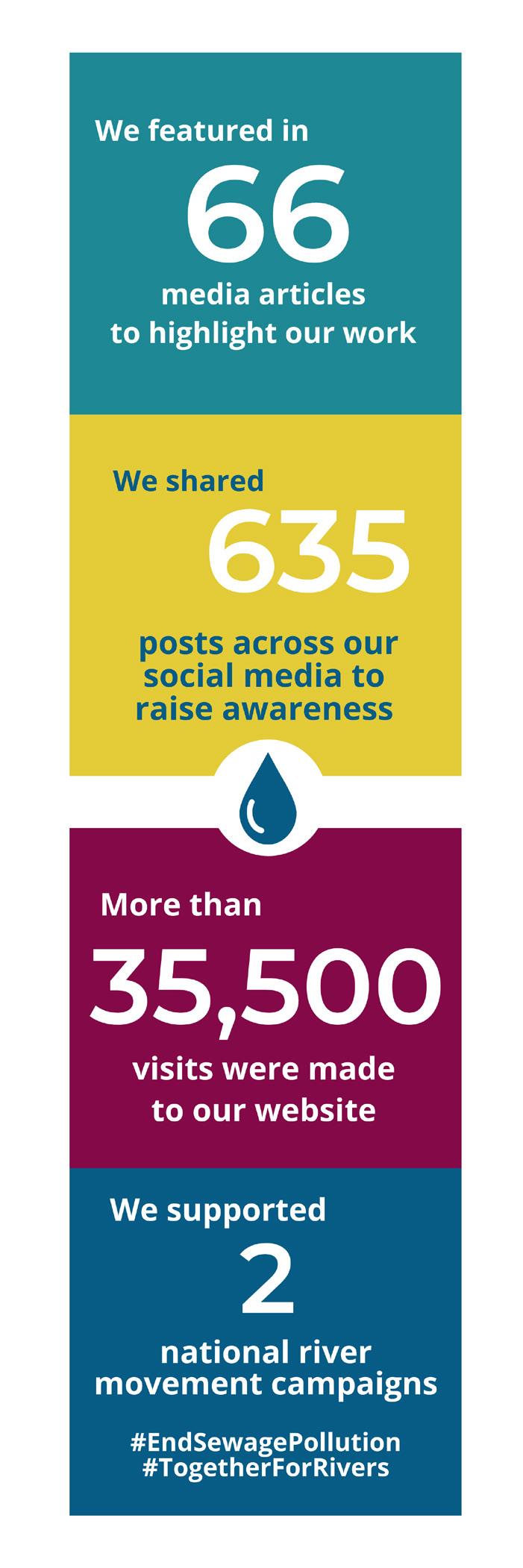
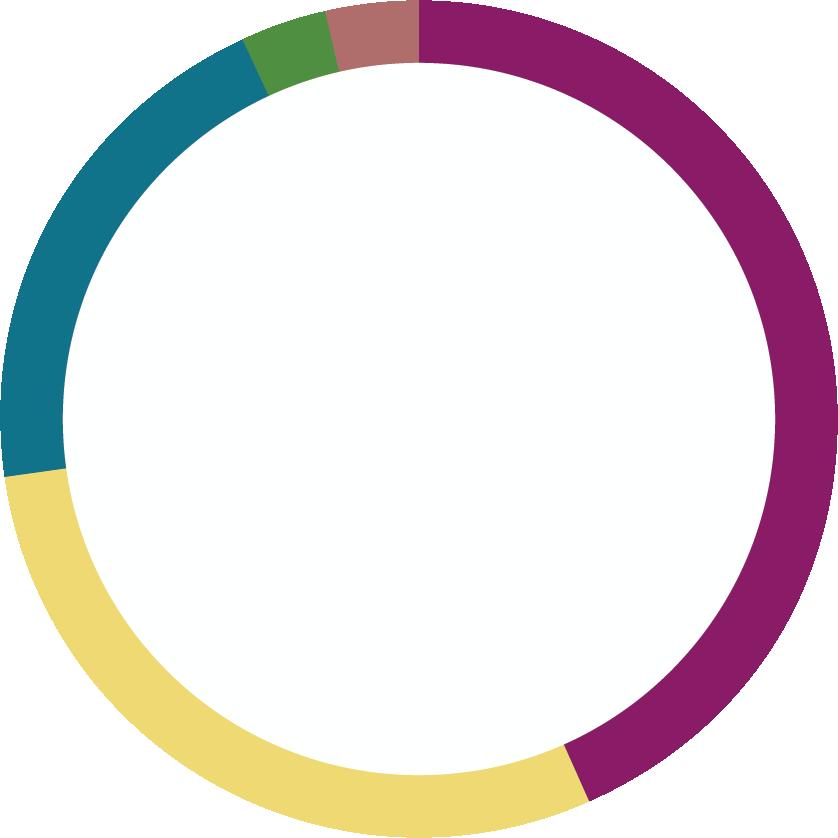
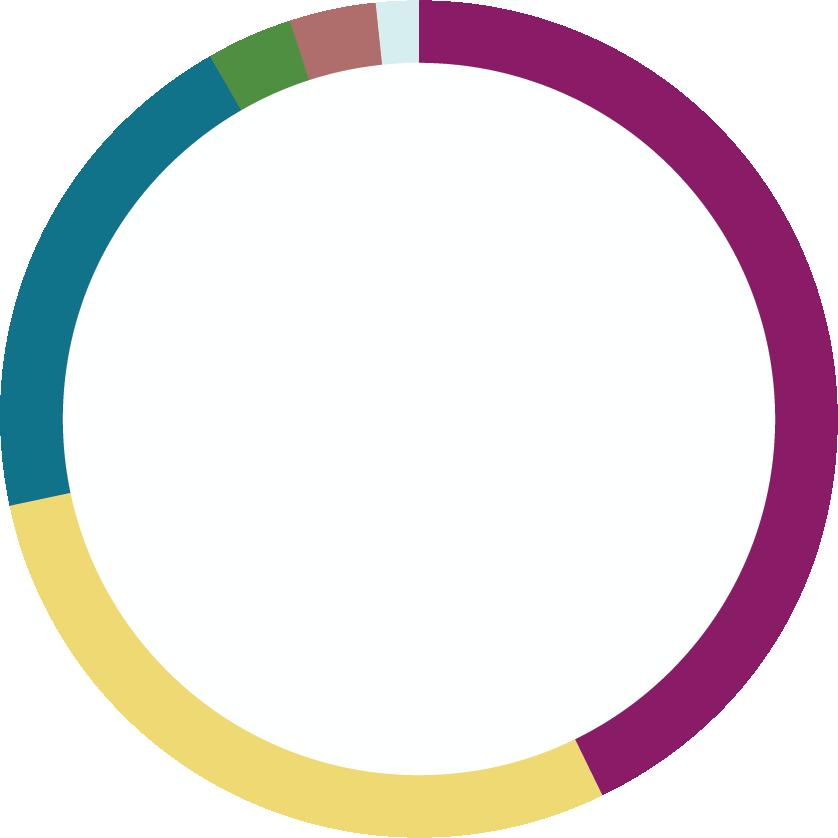
Donations £256,322 Other/Investment* £92,746
Throughout 2020, the charity has continued its involvement in EU-funded projects without any disruption to delivery or funding. Two new EU-funded projects will also begin in 2021 for four years. The future removal of EU funding as an income stream for the charity and the potential weakening of environmental legislation in the UK continues to be a threat to our financial resources.
Despite the pressures and difficult operating environment that the pandemic created, the charity has fared well and to date the impact on the charity and our results has not been significant. The Coronavirus Job Retention Scheme has been implemented where applicable.
Expenditure
Balancing Land Use £1,120,644
Protecting Rivers £757,470
Engaging People £523,657
Raising Funds £88,471
Our key concerns continue to be around the availability of future funding opportunities as funding and resources are diverted to address the considerable negative social impacts of the virus, and the long-term economic implications of the virus and the Government’s response.
However, the Government appear to be committed to environmental improvements and seem to be recognising that sometimes greater impact can be achieved by working closely with third sector delivery partners.
The charity is therefore confident that the environmental agenda will remain strong in the long term and the future will be positive.
wrt
org . uk
r
Other £89,150
Summary information is for the charitable group. * Other income = £88,576 Investment Income = £4,170 18 19





Bringing Rivers To Life Follow us on social media too... wrt.org.uk Westcountry Rivers Trust Please consider making a donation to our charitable work at:






















































